Network members
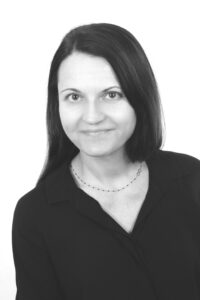 Dr habil. Anna Barcz [Ba:tʃ] is trained as a philosopher and literary scholar interested in developing resilient ecological knowledge in humanities. She currently works as an Assistant Professor at the Institute of History of the Polish Academy of Sciences (Warsaw); she was the MSCA Fellow at the Trinity Long Room Hub (Dublin 2018-2019), and Rachel Carson Centre Fellow (Munich 2019-2020). Her books include Environmental Cultures in Soviet East Europe (2020), Animal Narratives and Culture: Vulnerable Realism (2017) and Ecorealism: From Ecocriticism to Zoocriticism in Polish Literature (2016). Her recent research promotes the ecocritical studies on rivers and floods.
Dr habil. Anna Barcz [Ba:tʃ] is trained as a philosopher and literary scholar interested in developing resilient ecological knowledge in humanities. She currently works as an Assistant Professor at the Institute of History of the Polish Academy of Sciences (Warsaw); she was the MSCA Fellow at the Trinity Long Room Hub (Dublin 2018-2019), and Rachel Carson Centre Fellow (Munich 2019-2020). Her books include Environmental Cultures in Soviet East Europe (2020), Animal Narratives and Culture: Vulnerable Realism (2017) and Ecorealism: From Ecocriticism to Zoocriticism in Polish Literature (2016). Her recent research promotes the ecocritical studies on rivers and floods.
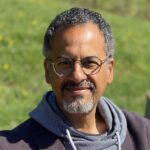 Salah Basalamah is Associate Professor and Chair of the School of Translation and Interpretation at the University of Ottawa. His main research program is channelled toward the development of conceptual research in general and, more specifically, the establishment of a philosophy of translation as a subfield of translation studies. Conceiving of the concept of translation in its more holistic scope, he believes that among the most recent growing conceptual body of research there is a stream of what he calls a “pan-philosophy of translation” (2023) in which eco-translation is a prominent contribution.
Salah Basalamah is Associate Professor and Chair of the School of Translation and Interpretation at the University of Ottawa. His main research program is channelled toward the development of conceptual research in general and, more specifically, the establishment of a philosophy of translation as a subfield of translation studies. Conceiving of the concept of translation in its more holistic scope, he believes that among the most recent growing conceptual body of research there is a stream of what he calls a “pan-philosophy of translation” (2023) in which eco-translation is a prominent contribution.
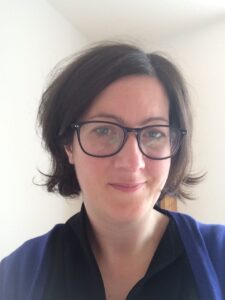
Morven Beaton-Thome is Professor for the Theory and Practice of Interpreting (English) at the Institute of Translation and Multilingual Communication at TH Köln – University of Applied Sciences, Cologne, Germany. Her research concentrates on agency, ethics and power, and the impact of interpreters and translators as gatekeepers of multilingual discourse. More recently, she has become interested in the conceptualisation of translation and interpreting and the role of technology in theorising and ‘translating’ the more-than-human.
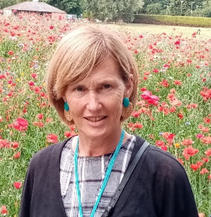 Karen Bennett is Associate Professor with Habilitation (agregação) in Translation at Nova University, Lisbon, and a researcher with the Centre for English, Translation and Anglo-Portuguese Studies (CETAPS), where she coordinates the Translationality strand. She is general editor of the journal Translation Matters and co-leader of the EPISTRAN project on (Inter-)Epistemic Translation. Within the Ecotranslation strand of that project, she is currently investigating the concept of Umwelt translation, deriving from the theories of biologist Jacob von Uexküll, with particular attention to its intersections with music.
Karen Bennett is Associate Professor with Habilitation (agregação) in Translation at Nova University, Lisbon, and a researcher with the Centre for English, Translation and Anglo-Portuguese Studies (CETAPS), where she coordinates the Translationality strand. She is general editor of the journal Translation Matters and co-leader of the EPISTRAN project on (Inter-)Epistemic Translation. Within the Ecotranslation strand of that project, she is currently investigating the concept of Umwelt translation, deriving from the theories of biologist Jacob von Uexküll, with particular attention to its intersections with music.
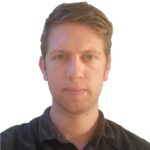 Jan Buts is associate professor at the Centre for Sustainable Healthcare Education (SHE), University of Oslo, Norway, where he is involved in the development of the Oslo Medical Corpus (OMC), a large language resource that supports research and teaching in healthcare and related domains. He co-coordinates the Genealogies of Knowledge Research Network and is a member of the Executive Council of IATIS (the International Association for Translation & Intercultural Studies). Currently, he is working on the concept of knowledge translation, the discourse of sustainability, and the description of multispecies metabolic encounters.
Jan Buts is associate professor at the Centre for Sustainable Healthcare Education (SHE), University of Oslo, Norway, where he is involved in the development of the Oslo Medical Corpus (OMC), a large language resource that supports research and teaching in healthcare and related domains. He co-coordinates the Genealogies of Knowledge Research Network and is a member of the Executive Council of IATIS (the International Association for Translation & Intercultural Studies). Currently, he is working on the concept of knowledge translation, the discourse of sustainability, and the description of multispecies metabolic encounters.
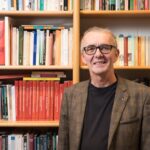 Michael Cronin is 1776 Professor of French in Trinity College Dublin and Senior Researcher in the Trinity Centre for Literary and Cultural Translation. Among his recently published titles are Eco-Translation: Translation and Ecology in the Age of the Anthropocene (Routledge, 2017), Irish and Ecology: An Ghaeilge agus an Éiceolaíocht (FÁS, 2019) and Eco-Travel: Journeying in the Age of the Anthropocene (Cambridge University Press, 2022). He is a Member of the Royal Irish Academy, the Academia Europaea, an Officier in the Ordre des Palmes Académiques and a Fellow of Trinity College Dublin.
Michael Cronin is 1776 Professor of French in Trinity College Dublin and Senior Researcher in the Trinity Centre for Literary and Cultural Translation. Among his recently published titles are Eco-Translation: Translation and Ecology in the Age of the Anthropocene (Routledge, 2017), Irish and Ecology: An Ghaeilge agus an Éiceolaíocht (FÁS, 2019) and Eco-Travel: Journeying in the Age of the Anthropocene (Cambridge University Press, 2022). He is a Member of the Royal Irish Academy, the Academia Europaea, an Officier in the Ordre des Palmes Académiques and a Fellow of Trinity College Dublin.

Kübra Çelik is an Assistant Professor in the Department of English Translation and Interpreting at Ankara Yıldırım Beyazıt University, Türkiye. She gained her B.A. and Ph.D. degrees in Translation Studies. Her research interests include literary translation, translation criticism, feminist and ecofeminist translation, ecotranslation, semiotics of translation, and intertextuality. Dr. Çelik currently teaches courses on translation theory, written translation, intertextuality, and conference interpreting. She has recently completed her monograph titled Çeviribilimde Feminist ve Ekofeminist Yaklaşımlar [Feminist and Ecofeminist Approaches in Translation Studies].
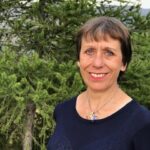 Lucile Desblache is Professor Emerita in Translation and Transcultural Studies at the University of Roehampton. She has been an active researcher in Animal Studies since the start of the 21st century, investigating representations of animals in contemporary cultures, and, more recently, cultural manifestations of interspecies communication. As the Director of the Centre for Translation and Transcultural Studies (2009-2020), she has led, overlooked or taken part in a wide variety of interdisciplinary research projects, which span Audiovisual Translation, Environmental Studies and Animal Studies. Her most recent monograph (2019), Music and Translation: New Mediations in the Digital Age devotes its last chapter to ‘Music as a mediating agent of the non human’.
Lucile Desblache is Professor Emerita in Translation and Transcultural Studies at the University of Roehampton. She has been an active researcher in Animal Studies since the start of the 21st century, investigating representations of animals in contemporary cultures, and, more recently, cultural manifestations of interspecies communication. As the Director of the Centre for Translation and Transcultural Studies (2009-2020), she has led, overlooked or taken part in a wide variety of interdisciplinary research projects, which span Audiovisual Translation, Environmental Studies and Animal Studies. Her most recent monograph (2019), Music and Translation: New Mediations in the Digital Age devotes its last chapter to ‘Music as a mediating agent of the non human’.
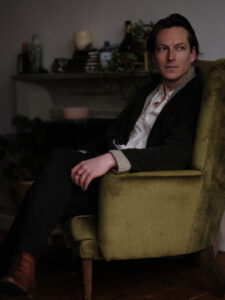
Patrick James Errington is Lecturer in Creative Writing at the University of Edinburgh; the author of the poetry collections Glean (ignitionpress, 2018), Field Studies (Clutag Press, 2019), and the swailing (MQUP, 2023); and, the translator of PJ Harvey’s The Hollow of the Hand into French (Age d’Homme, 2017), French-Algerian eco-poet and artist Hamid Tibouchi’s poetry into English (forthcoming), and French-Romanian philosopher E.M. Cioran’s Cahiers into English (forthcoming from NYRB). He has collaborated with Yulia Kovanova in the production ecological poetry/film/installations. His transdisciplinary research explores other-than-critical forms of literary knowledge and their implications for psychology, ecology, and health.
 Hedwig (Hedy) Fraunhofer is Professor of French and German at Georgia College & State University (U.S.). Trained in comparative literature, she works at the intersection of language, literature, posthumanist philosophy and eco-pedagogy. She is the author of Biopolitics, Materiality and Meaning in Modern European Drama, published in the series on New Materialisms co-edited by Iris van der Tuin and Rosi Braidotti, Edinburgh UP, 2020. Among other recent contributions, her article, “Translating Plants: A Starting Point,” was published in Time, Space, Matter in Translation, ed. Pamela Beattie, Simona Bertacco, Tatjana Soldat-Jaffe, Routledge, August 2022.
Hedwig (Hedy) Fraunhofer is Professor of French and German at Georgia College & State University (U.S.). Trained in comparative literature, she works at the intersection of language, literature, posthumanist philosophy and eco-pedagogy. She is the author of Biopolitics, Materiality and Meaning in Modern European Drama, published in the series on New Materialisms co-edited by Iris van der Tuin and Rosi Braidotti, Edinburgh UP, 2020. Among other recent contributions, her article, “Translating Plants: A Starting Point,” was published in Time, Space, Matter in Translation, ed. Pamela Beattie, Simona Bertacco, Tatjana Soldat-Jaffe, Routledge, August 2022.
 Delphine Grass is Senior Lecturer in French and Comparative Literature at Lancaster University (UK) where she teaches on the MA in Translation. Her most recent academic publications include Translation as Creative-Critical Practice (2023, CUP) and two forthcoming collective volumes on translation and experimental life writing she is co-editing with Lily Robert-Foley (Montpellier III). She is currently conducting research on creative-critical translations which explore semiotic borders between humans and non-humans in ‘multinatural’ as well as multicultural contexts. She is collaborating, as part of the writing collective D(r)aft, on a creative-critical project entitled ‘Composting: Translation in Remains’.
Delphine Grass is Senior Lecturer in French and Comparative Literature at Lancaster University (UK) where she teaches on the MA in Translation. Her most recent academic publications include Translation as Creative-Critical Practice (2023, CUP) and two forthcoming collective volumes on translation and experimental life writing she is co-editing with Lily Robert-Foley (Montpellier III). She is currently conducting research on creative-critical translations which explore semiotic borders between humans and non-humans in ‘multinatural’ as well as multicultural contexts. She is collaborating, as part of the writing collective D(r)aft, on a creative-critical project entitled ‘Composting: Translation in Remains’.
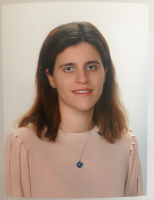 Harika Karavin Yüce is Assistant Professor at the Department of Translation and Interpreting Studies, Trakya University, Türkiye. She gained her MA and PhD degrees in Translation Studies, and she is teaching undergraduate and graduate courses on translation theory, literary translation, specialized translation and interpreting. Her research interests include translation of style, translation criticism, business translation, and translation of children’s literature and eco-anxiety. She is also a literary translator of novels into Turkish. Her current funded research is on “Analyzing the Role of Translations on Eco-Awareness and Eco-Anxiety Among Children and Teens”.
Harika Karavin Yüce is Assistant Professor at the Department of Translation and Interpreting Studies, Trakya University, Türkiye. She gained her MA and PhD degrees in Translation Studies, and she is teaching undergraduate and graduate courses on translation theory, literary translation, specialized translation and interpreting. Her research interests include translation of style, translation criticism, business translation, and translation of children’s literature and eco-anxiety. She is also a literary translator of novels into Turkish. Her current funded research is on “Analyzing the Role of Translations on Eco-Awareness and Eco-Anxiety Among Children and Teens”.
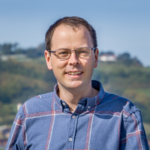 James Kelly is a lecturer and tutor in the Tourism and Languages subject group at Edinburgh Napier University, where he teaches two advanced Spanish modules. He gained his PhD in Translation Studies from the University of Edinburgh and is a fellow of Advance HE. His research interests include 20th- and 21st-century French philosophy, translation and language, ecology, and the landscapes and indigenous peoples of Chile. His recent publications include “Penser les paysages avec les trois synthèses du temps de Deleuze” in the Journal of French and Francophone Philosophy and “From sea to source: The journey of the Biobío River” in Antennae: The Journal of Nature in Visual Culture.
James Kelly is a lecturer and tutor in the Tourism and Languages subject group at Edinburgh Napier University, where he teaches two advanced Spanish modules. He gained his PhD in Translation Studies from the University of Edinburgh and is a fellow of Advance HE. His research interests include 20th- and 21st-century French philosophy, translation and language, ecology, and the landscapes and indigenous peoples of Chile. His recent publications include “Penser les paysages avec les trois synthèses du temps de Deleuze” in the Journal of French and Francophone Philosophy and “From sea to source: The journey of the Biobío River” in Antennae: The Journal of Nature in Visual Culture.
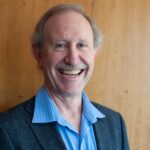 Kobus Marais is Professor of Translation Studies at the University of the Free State, Bloemfontein. He has published three monographs, namely Translation Theory and Development Studies: A Complexity Theory Approach (2014), A (Bio)Semiotic Theory of Translation: The Emergence of Social-Cultural Reality (2018) and Trajectories of Translation: The Thermodynamics of Semiosis (June 2023) as well as a number of edited volumes such as Translation Beyond Translation Studies (2022). His work provides a conceptual underpinning for a new materialist approach to ecological issues by amending linguicentric and anthropocentric approaches to be fully semiotic approaches.
Kobus Marais is Professor of Translation Studies at the University of the Free State, Bloemfontein. He has published three monographs, namely Translation Theory and Development Studies: A Complexity Theory Approach (2014), A (Bio)Semiotic Theory of Translation: The Emergence of Social-Cultural Reality (2018) and Trajectories of Translation: The Thermodynamics of Semiosis (June 2023) as well as a number of edited volumes such as Translation Beyond Translation Studies (2022). His work provides a conceptual underpinning for a new materialist approach to ecological issues by amending linguicentric and anthropocentric approaches to be fully semiotic approaches.
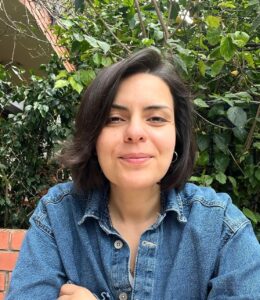
Fulya Marmara is a Research Assistant at the Department of French Translation and Interpreting, Yıldız Technical University, İstanbul, Türkiye. She received her PhD in 2020 on the translation of nonhuman animals in the Anthropocene. Her research interests include eco-translation, antispeciesism, ignorance studies, and queer translation. She teaches undergraduate courses in French literature and civilization, technical translation, and audiovisual translation, and has designed two courses within the framework of eco-translation: The Anthropocene and Engaged Translation, and Translation and Ecological Mediation. She also coordinates the research group Biodemocracy and Inclusive Linguistic Practices at Yıldız Technical University, which explores inclusive and ecological approaches to language. Additionally, she is a member of the Société française de Zoosémiotique.
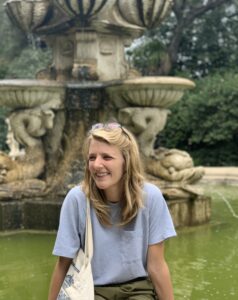
Kelsey McFaul has her PhD in literature from the University of California, Santa Cruz and an MA in African studies from Stanford University. Her research brings together the atmospheric and environmental humanities, African epistemologies and Afrophone language literatures, climate grief, and translation studies. Her PhD dissertation, Rain Washed the Old World Away: Empire and the Novel in the Horn of Africa, includes the translation from Amharic to English of the 1908 novella Lǝbb Wälläd Tarik. She was the 2020-21 Public Fellow at the Center for the Art of Translation and is now assistant editor at Two Lines Press.
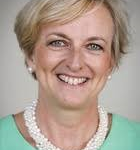
Reine Meylaerts is Full Professor and currently (2021-2025) vice-rector of Social Sciences and Humanities at KU Leuven. Her research interests concern translation policy for minorities, intercultural mediation and transfer in multilingual cultures, past and present. Together with Kobus Marais, she edited The Routledge Handbook of Translation Theory and Concepts based on expanded definitions of translation and on understanding translational phenomena in the broadest sense, including ecological and biosemiotic approaches. Other relevant publications include Kobus Marais and Reine Meylaerts (eds.) 2022. Exploring the implications of complexity thinking for translation studies.
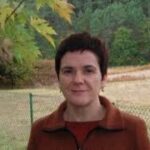 Manuela Palacios is Senior Lecturer of English at Universidade de Santiago de Compostela, Spain. She has directed five national research projects on contemporary Irish and Galician literature, the last two being ‘Ecofictions’ and ‘The Animal Trope’. Her publications on ecocriticism include the co-edition of a special issue of the journal Estudios Irlandeses 15.2 (2020): Eco-Fictions, the Animal Trope and Irish Studies, and the articles “Damnatio ad Bestias: Performing Animality and Womanhood in Contemporary Irish and Galician Poetry” (with M. Aleixandre), Altre Modernità 26.1 (2021), and “Inside the Whale: Configurations of An-Other Female Subjectivity” in Women’s Studies 47.2 (2018).
Manuela Palacios is Senior Lecturer of English at Universidade de Santiago de Compostela, Spain. She has directed five national research projects on contemporary Irish and Galician literature, the last two being ‘Ecofictions’ and ‘The Animal Trope’. Her publications on ecocriticism include the co-edition of a special issue of the journal Estudios Irlandeses 15.2 (2020): Eco-Fictions, the Animal Trope and Irish Studies, and the articles “Damnatio ad Bestias: Performing Animality and Womanhood in Contemporary Irish and Galician Poetry” (with M. Aleixandre), Altre Modernità 26.1 (2021), and “Inside the Whale: Configurations of An-Other Female Subjectivity” in Women’s Studies 47.2 (2018).
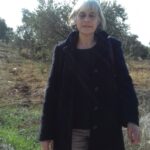 Myriam Salama-Carr is Honorary Research Fellow at the University of Manchester, Centre for Translation and Intercultural Studies. Her research focuses on the history of translation, ideological aspects of the translation of science and transmission and construction of knowledge. Her more recent publications include The Anthology of Arabic Discourse on Translation (Routledge, 2021) and “L’École de Bagdad. Pierre angulaire d’une tradition donnée et élément constitutif d’une historiographie universelle de la traduction” in Équivalences (2020), and “Negotiating Asymmetry: The language of Animal Rights and Animal Welfare” (2021). Her research on the discourse of animal rights and welfare draws on her interest in the translation of science and its ideological dimension.
Myriam Salama-Carr is Honorary Research Fellow at the University of Manchester, Centre for Translation and Intercultural Studies. Her research focuses on the history of translation, ideological aspects of the translation of science and transmission and construction of knowledge. Her more recent publications include The Anthology of Arabic Discourse on Translation (Routledge, 2021) and “L’École de Bagdad. Pierre angulaire d’une tradition donnée et élément constitutif d’une historiographie universelle de la traduction” in Équivalences (2020), and “Negotiating Asymmetry: The language of Animal Rights and Animal Welfare” (2021). Her research on the discourse of animal rights and welfare draws on her interest in the translation of science and its ideological dimension.
Alison Sealey is Professor Emerita of Applied Linguistics at Lancaster University, UK. She was co-investigator on the project ‘“People”, “products”, “pests” and “pets”: the discursive representation of animals’, funded by the Leverhulme Trust, and is currently writing a book about the implications of the way we talk about the non-humans with whom we share the planet. Among her recent publications are ‘Translation: a biosemiotic/more-than-human perspective’ (Target. International Journal of Translation Studies); ‘Animals, animacy and anthropocentrism’ (International Journal of Language and Culture); ‘”What do animals mean to you?”: naming and relating to non-human animals’ (with Nickie Charles, Anthrozoos).
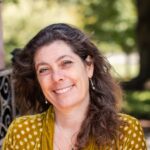 Carolyn Shread is Senior Lecturer in French at Mount Holyoke College and teaches translation at Smith College, two liberal arts colleges in Massachusetts, USA. She has translated eleven books into English, including seven by philosopher Catherine Malabou. The most recent is entitled Stop Thief! Anarchism in Philosophy. Shread’s articles address two principal areas of research: the implications of Malabou’s concept of plasticity for translation studies and the process of translating Haitian author Marie Vieux-Chauvet’s Les Rapaces. She has a longstanding interest in feminist and decolonial translation and has combined her exploration of the plastic in translation with ecotranslation.
Carolyn Shread is Senior Lecturer in French at Mount Holyoke College and teaches translation at Smith College, two liberal arts colleges in Massachusetts, USA. She has translated eleven books into English, including seven by philosopher Catherine Malabou. The most recent is entitled Stop Thief! Anarchism in Philosophy. Shread’s articles address two principal areas of research: the implications of Malabou’s concept of plasticity for translation studies and the process of translating Haitian author Marie Vieux-Chauvet’s Les Rapaces. She has a longstanding interest in feminist and decolonial translation and has combined her exploration of the plastic in translation with ecotranslation.
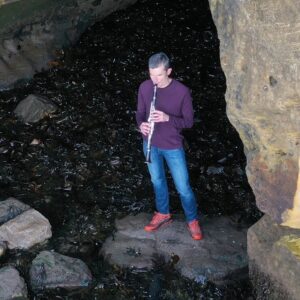 Alex South is a Postdoctoral Fellow at the Institute for Advanced Studies in the Humanities (University of Edinburgh), where his research is focused on ethical questions arising from the human use of the sounds of other animals. His interdisciplinary PhD, ‘Cetacean Citations’, combined practice-led research from the perspectives of ecomusicology and zoömusicology with bioacoustical studies on humpback whale song. Alex’s compositions inspired by whale song have been performed across the UK and internationally, and featured in recent CBC documentary ‘The Musical Animal’. He teaches on undergraduate music courses at the University of St Andrews and Royal Conservatoire of Scotland.
Alex South is a Postdoctoral Fellow at the Institute for Advanced Studies in the Humanities (University of Edinburgh), where his research is focused on ethical questions arising from the human use of the sounds of other animals. His interdisciplinary PhD, ‘Cetacean Citations’, combined practice-led research from the perspectives of ecomusicology and zoömusicology with bioacoustical studies on humpback whale song. Alex’s compositions inspired by whale song have been performed across the UK and internationally, and featured in recent CBC documentary ‘The Musical Animal’. He teaches on undergraduate music courses at the University of St Andrews and Royal Conservatoire of Scotland.
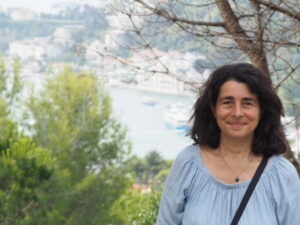 Şebnem Susam-Saraeva is a Professor of Translation Studies at the University of Edinburgh, Scotland, U.K. Her research interests have included retranslations, research methodology in translation studies, internationalization of the discipline, and translation and gender, literary theories, popular music, social movements, and maternal health. Her recent work has focused on retranslations of folk songs through the lens of ecofeminism; ethics of the representation and translation of marine mammal communication in arts and music; and, (knowledge) translation in climate crisis discourse. She is also a doula, permaculture practitioner, and occasional poet.
Şebnem Susam-Saraeva is a Professor of Translation Studies at the University of Edinburgh, Scotland, U.K. Her research interests have included retranslations, research methodology in translation studies, internationalization of the discipline, and translation and gender, literary theories, popular music, social movements, and maternal health. Her recent work has focused on retranslations of folk songs through the lens of ecofeminism; ethics of the representation and translation of marine mammal communication in arts and music; and, (knowledge) translation in climate crisis discourse. She is also a doula, permaculture practitioner, and occasional poet.
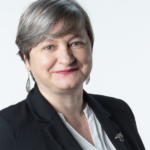 Marija Todorova is Research Assistant Professor at the Department of Translation, Interpreting and Intercultural Studies, Hong Kong Baptist University. Her research has appeared in Linguistica Antverpiensia, Translation Spaces, Translation and Interpreting Studies, and numerous edited collections, including the Oxford Handbook of Translation and Social Practice (OUP 2021). Most recently, her article “The Role of Translation in Environmental Protection: An Inclusive Approach” appeared in The Translator. She guest-edited a special issue of Antverpiencia Linguistica on Translation and Inclusive Development (2022, with Kobus Marais), and serves as Executive Council Member of the International Association for Translation and Intercultural Studies (IATIS).
Marija Todorova is Research Assistant Professor at the Department of Translation, Interpreting and Intercultural Studies, Hong Kong Baptist University. Her research has appeared in Linguistica Antverpiensia, Translation Spaces, Translation and Interpreting Studies, and numerous edited collections, including the Oxford Handbook of Translation and Social Practice (OUP 2021). Most recently, her article “The Role of Translation in Environmental Protection: An Inclusive Approach” appeared in The Translator. She guest-edited a special issue of Antverpiencia Linguistica on Translation and Inclusive Development (2022, with Kobus Marais), and serves as Executive Council Member of the International Association for Translation and Intercultural Studies (IATIS).
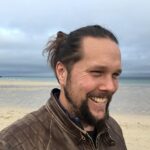 Matt Valler is a PhD student in Translation Studies at Queen’s University Belfast. His primary research interests concern the philosophy of translation, particularly in relation to New Materialism, and the materiality of narrative time in the context of environmental and ecological crises. Matt’s PhD project is titled, Taking the Measure of High Cross: translating the many worlds of Truro in the time of the Anthropocene. He also curates a cross-departmental seminar series for the Institute of Cornish Studies at the University of Exeter called Complex Cornwall: theoretical and practical innovations in interdisciplinary research.
Matt Valler is a PhD student in Translation Studies at Queen’s University Belfast. His primary research interests concern the philosophy of translation, particularly in relation to New Materialism, and the materiality of narrative time in the context of environmental and ecological crises. Matt’s PhD project is titled, Taking the Measure of High Cross: translating the many worlds of Truro in the time of the Anthropocene. He also curates a cross-departmental seminar series for the Institute of Cornish Studies at the University of Exeter called Complex Cornwall: theoretical and practical innovations in interdisciplinary research.
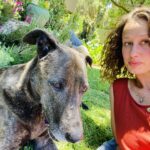 Xany Jansen van Vuuren obtained her Ph.D. from the University of the Free State in 2022, where she is also a lecturer in the Department of Linguistics and Language Practice. She teaches interpreting and translation on undergraduate and postgraduate level. Her research areas of focus include ecosemiotics, eco-translation, knowledge translation, translation and activism, and interspecies translation and interpreting. She is currently completing her monograph, entitled “Interpreting, communication and animal welfare: An ecosemiotic analysis of interspecies translation” with De Gruyter Mouton.
Xany Jansen van Vuuren obtained her Ph.D. from the University of the Free State in 2022, where she is also a lecturer in the Department of Linguistics and Language Practice. She teaches interpreting and translation on undergraduate and postgraduate level. Her research areas of focus include ecosemiotics, eco-translation, knowledge translation, translation and activism, and interspecies translation and interpreting. She is currently completing her monograph, entitled “Interpreting, communication and animal welfare: An ecosemiotic analysis of interspecies translation” with De Gruyter Mouton.


Comments are closed
Comments to this thread have been closed by the post author or by an administrator.